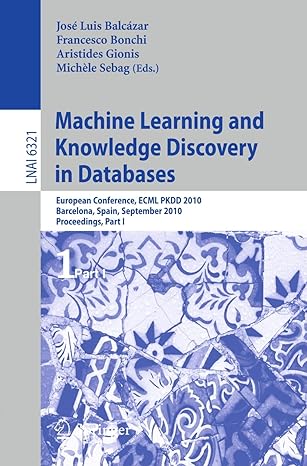Answered step by step
Verified Expert Solution
Question
1 Approved Answer
Let Fn denote the nth Fibonacci number. We have F1 = F2 = 1 and for i 3, Fi = Fi1 + Fi2 (so F3
Let Fn denote the nth Fibonacci number. We have F1 = F2 = 1 and for i 3, Fi = Fi1 + Fi2 (so F3 = 2, F4 = 3, F5 = 5, F6 = 8, . . .). Recall Fn n , where = (1 + 5)/2. Find the running time of an algorithm that exactly finds the integer Qn i=1 Fi using (((F1 F2)F3). . .Fn). Your answer should be O() of a function of n and not have an F in it. Explain your answer. For simplicity, assume that you already have F1, . . . , Fn in storage, so you dont have to worry about the time to compute them.
Step by Step Solution
There are 3 Steps involved in it
Step: 1

Get Instant Access to Expert-Tailored Solutions
See step-by-step solutions with expert insights and AI powered tools for academic success
Step: 2

Step: 3

Ace Your Homework with AI
Get the answers you need in no time with our AI-driven, step-by-step assistance
Get Started


